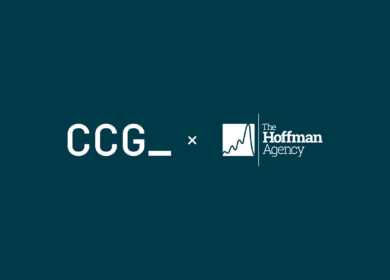
The global trade landscape is rarely static, but the potential implementation of new US tariff regulations is sending ripples of uncertainty across international markets. For countries within the Asia-Pacific (APAC) region, this looming development is likely to trigger a strategic pivot: a heightened focus on intra-regional trade and a renewed emphasis on strengthening regional cooperation.
For decades, global supply chains have been intricately woven, with the US often playing a significant role as a key export destination. The prospect of increased tariffs necessitates a re-evaluation of trade dependencies. APAC nations with dynamic and growing economies are well-positioned to foster stronger economic ties between each other. This could manifest in several ways:
- Deepening existing trade agreements: Expect renewed efforts to streamline existing regional trade agreements like ASEAN, CPTPP, and RCEP, aiming for reduced barriers and more frictionless trade flows within the bloc.
- Exploring new partnerships: The need for diversified markets could spur the exploration of new bilateral and multilateral trade agreements between APAC economies.
- Investing in regional infrastructure: To facilitate increased intra-regional trade, investments in transportation, logistics, and digital infrastructure connecting APAC nations will become even more critical.
- Boosting local demand: Governments may implement policies to further stimulate domestic consumption and support local businesses, reducing reliance on external markets.
Agility is Key: Communication Strategies for Uncertain Times
In this era of global trade uncertainties, agility is paramount for businesses operating within APAC. This requires more than just operational flexibility; it demands robust and proactive communication strategies. Companies must be prepared for sudden shifts and challenges with well-defined crisis plans in place.
A reactive approach to trade policy changes can be detrimental. Instead, businesses should:
- Establish clear communication channels: Ensure efficient and reliable channels for disseminating information internally and externally. This includes leveraging digital platforms, holding regular briefings, and establishing dedicated communication teams.
- Develop scenario planning and contingency communications: Anticipate potential impacts of tariff changes and develop pre-approved communication strategies for various scenarios. This allows for swift and consistent messaging when challenges arise.
- Practice transparency and timeliness: When changes occur, communicate promptly and transparently with all stakeholders. Delay or ambiguity can breed mistrust and anxiety.
- Regularly monitor the trade landscape: Stay informed about evolving trade policies and their potential impact on the business. This allows for proactive adjustments to strategies and communication plans.
The Power of Internal Communication in Times of Flux
Amid external uncertainties, the importance of internal communication cannot be overstated. Employees are likely to experience concerns and fears regarding the potential impact of tariff changes on job security, business stability, and overall company performance.
Addressing these concerns proactively is crucial for maintaining morale, productivity, and a sense of unity. Effective internal communication strategies should:
- Acknowledge and validate concerns: Recognize the anxieties of employees and provide a platform for open dialogue and questions.
- Disseminate clear and consistent information: Ensure all employees receive accurate and timely updates regarding the company’s response to the changing trade environment. Avoid rumors and speculation by providing official information.
- Explain the company’s strategy: Clearly articulate the company’s plan for navigating the challenges and exploring new opportunities. This helps employees understand the direction and feel more secure.
- Emphasize the importance of teamwork and resilience: Reinforce the idea that the company will overcome these challenges through collective effort and adaptability.
Making Communication an Integral Part of Company Strategy
As companies in APAC explore new trade opportunities, diversify their markets, or adapt their supply chains in response to potential US tariffs, communication must be part of the fabric of strategic planning. Maintaining the confidence of external stakeholders and investors is vital during periods of transition.
This means:
- Proactive stakeholder engagement: Regularly communicate with investors, partners, suppliers, and customers about the company’s strategic direction and how it is adapting to the evolving trade landscape.
- Highlighting strengths and opportunities: Emphasize the company’s resilience, its exploration of new markets, and any potential benefits arising from strengthened regional cooperation.
- Demonstrating a clear vision for the future: Articulate a clear and compelling vision for the company’s long-term success in the new trade environment.
- Building trust and transparency: Consistent and honest communication builds trust and reinforces confidence among external stakeholders.
The potential implementation of new US tariffs presents both challenges and opportunities for the APAC region. While the focus on intra-regional trade and strengthened cooperation offers a path forward, the ability of individual companies to navigate this uncertainty will largely depend on their agility and, crucially, their commitment to effective communication. By prioritizing clear internal and external communication strategies, businesses in APAC can not only weather the storm but also position themselves for sustainable growth in a shifting global trade landscape.

